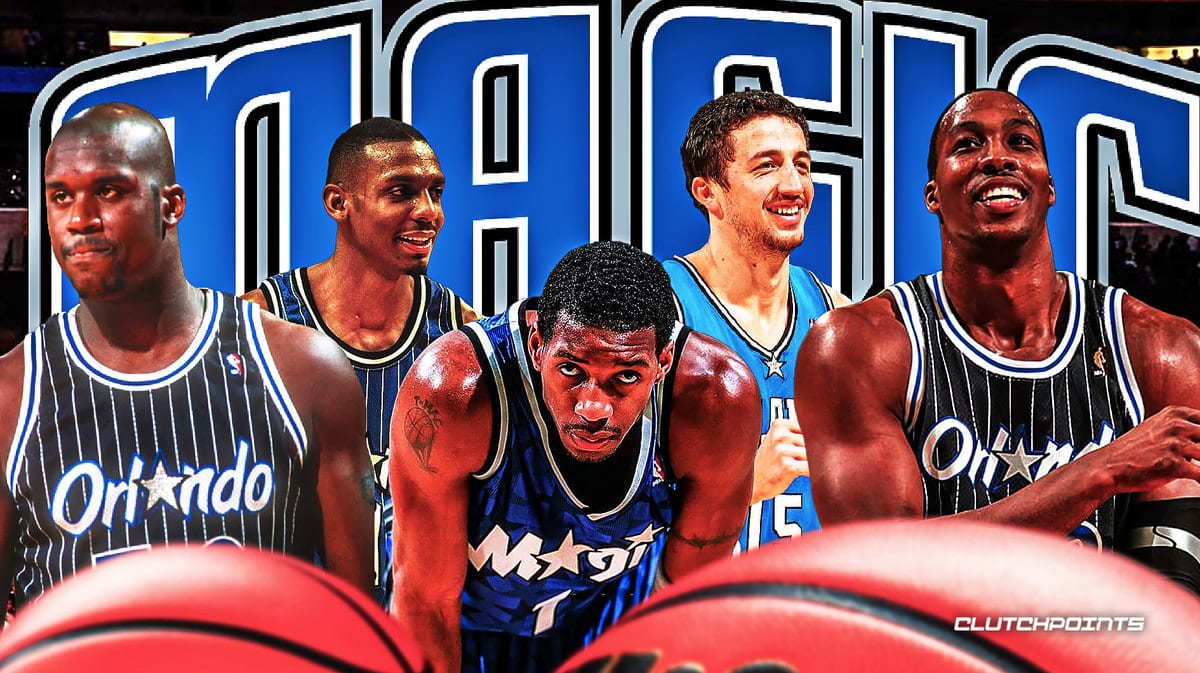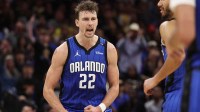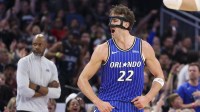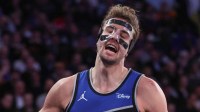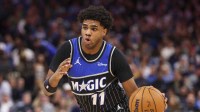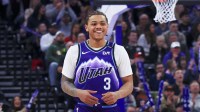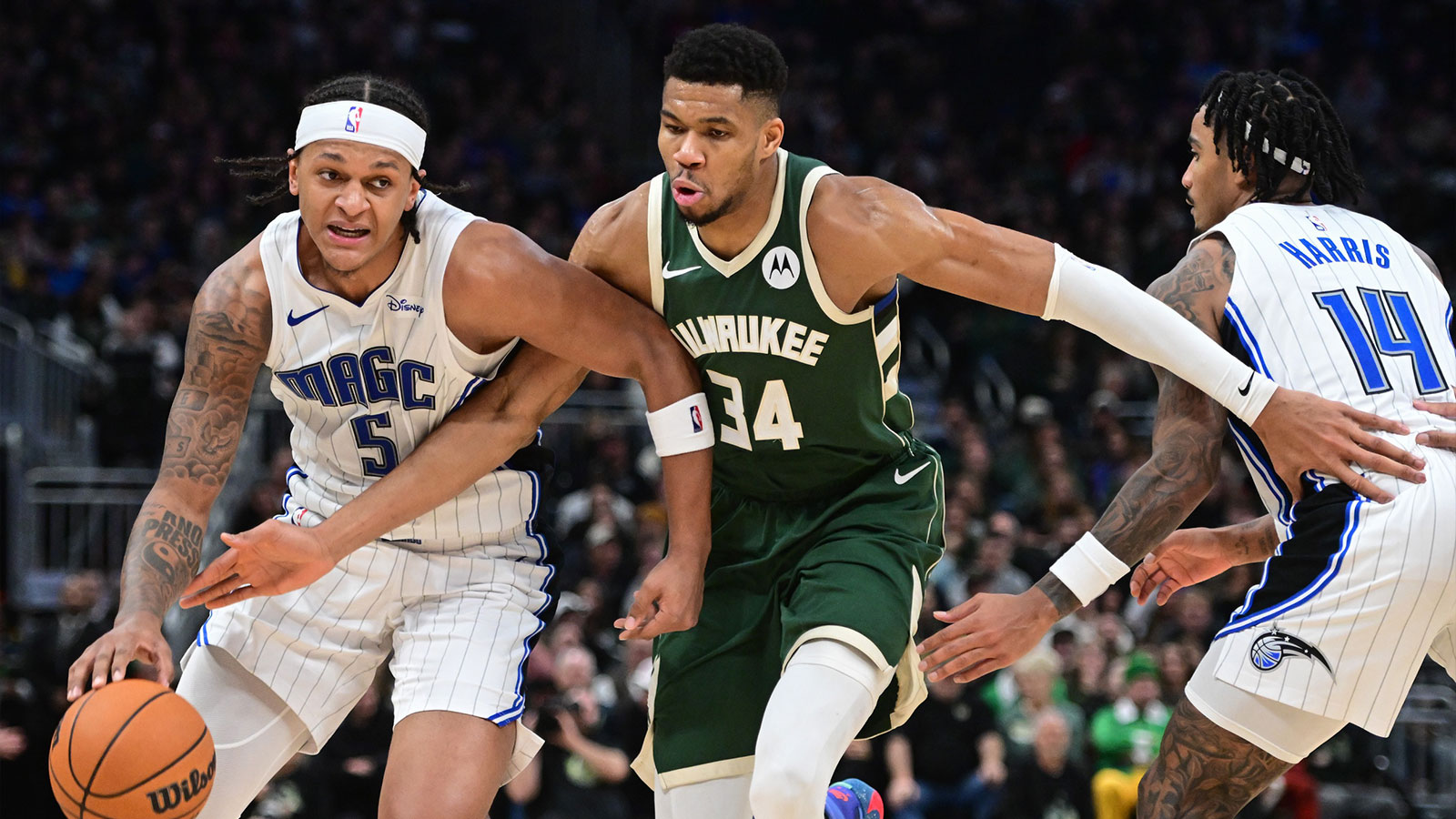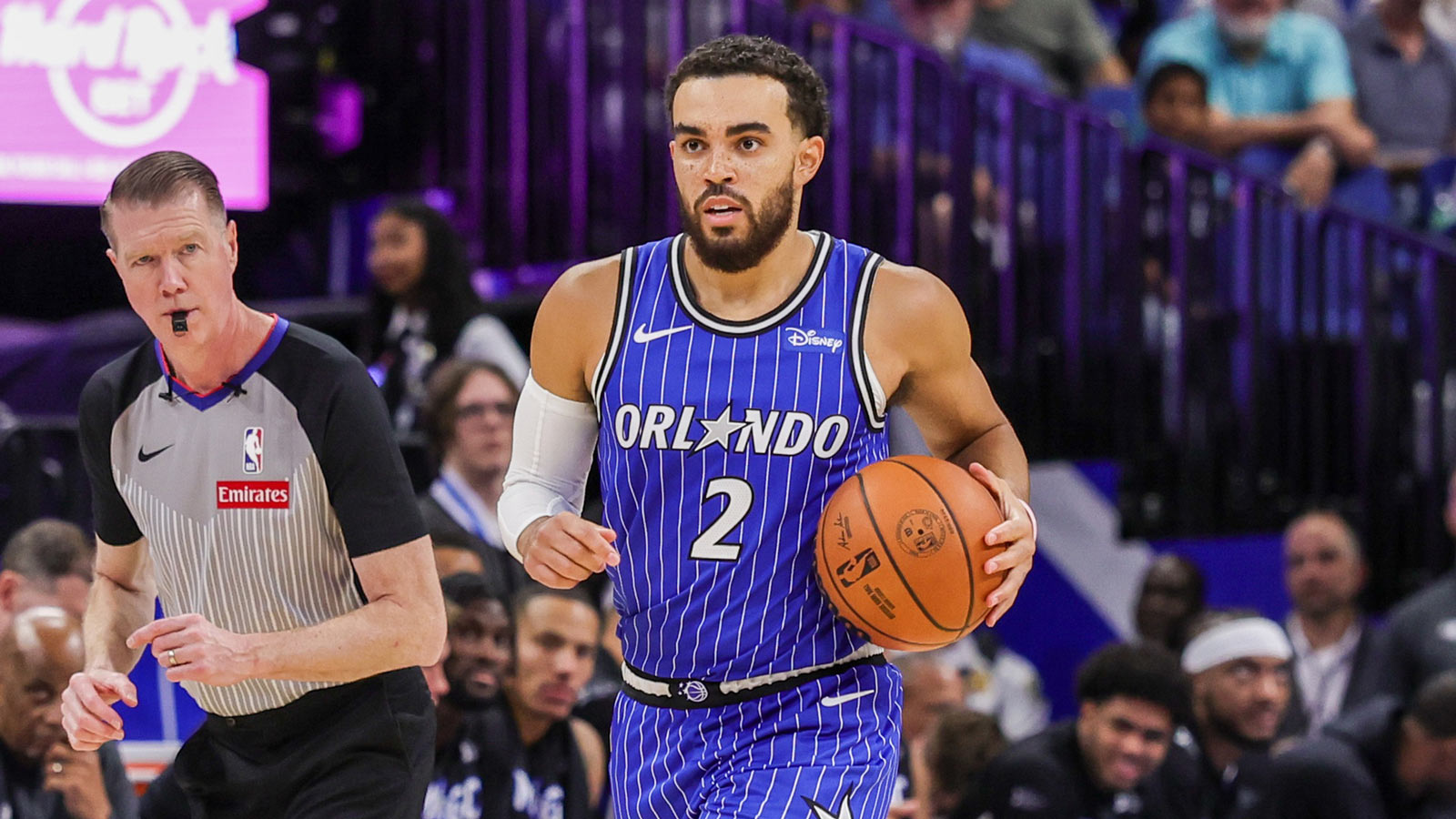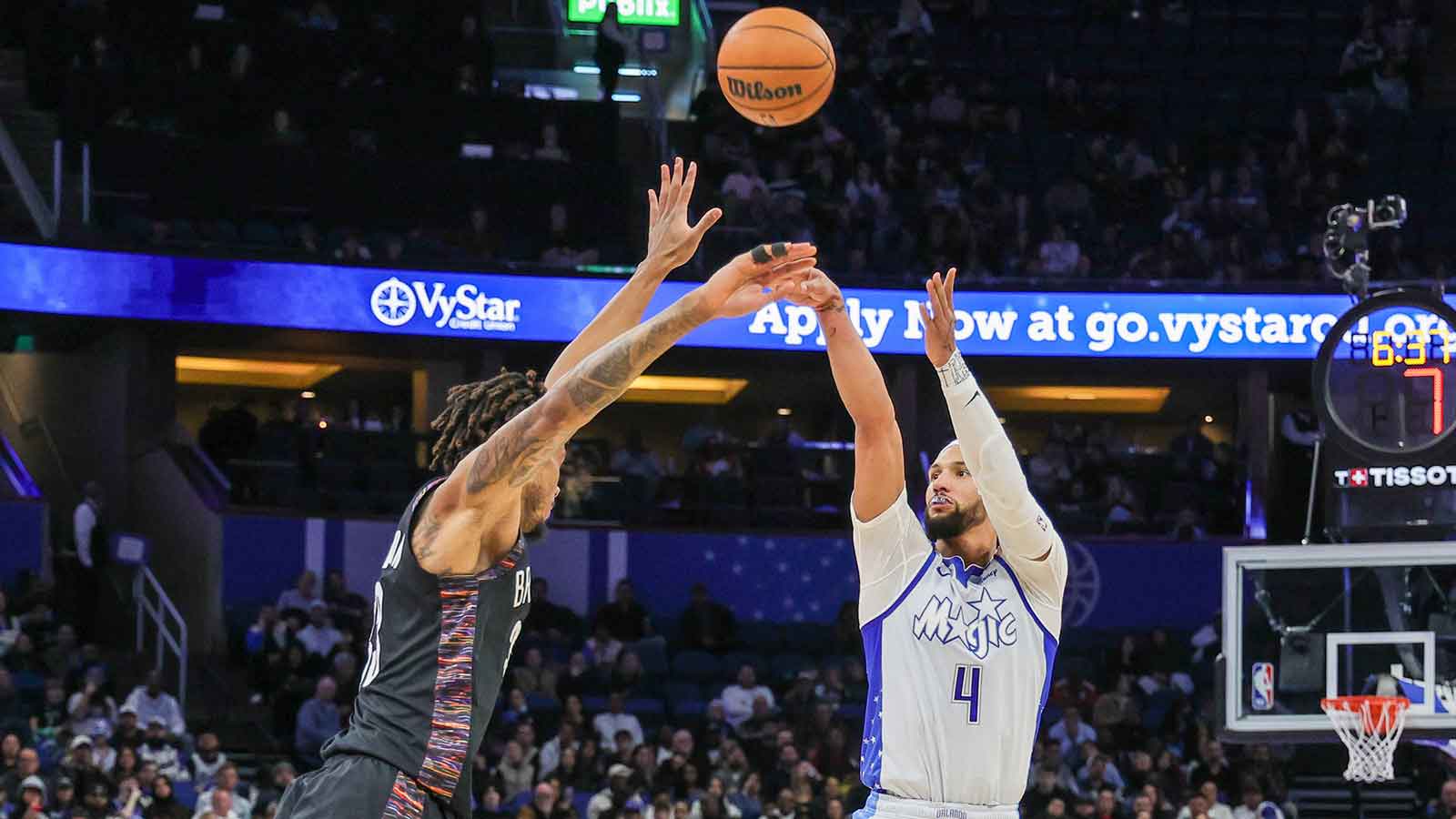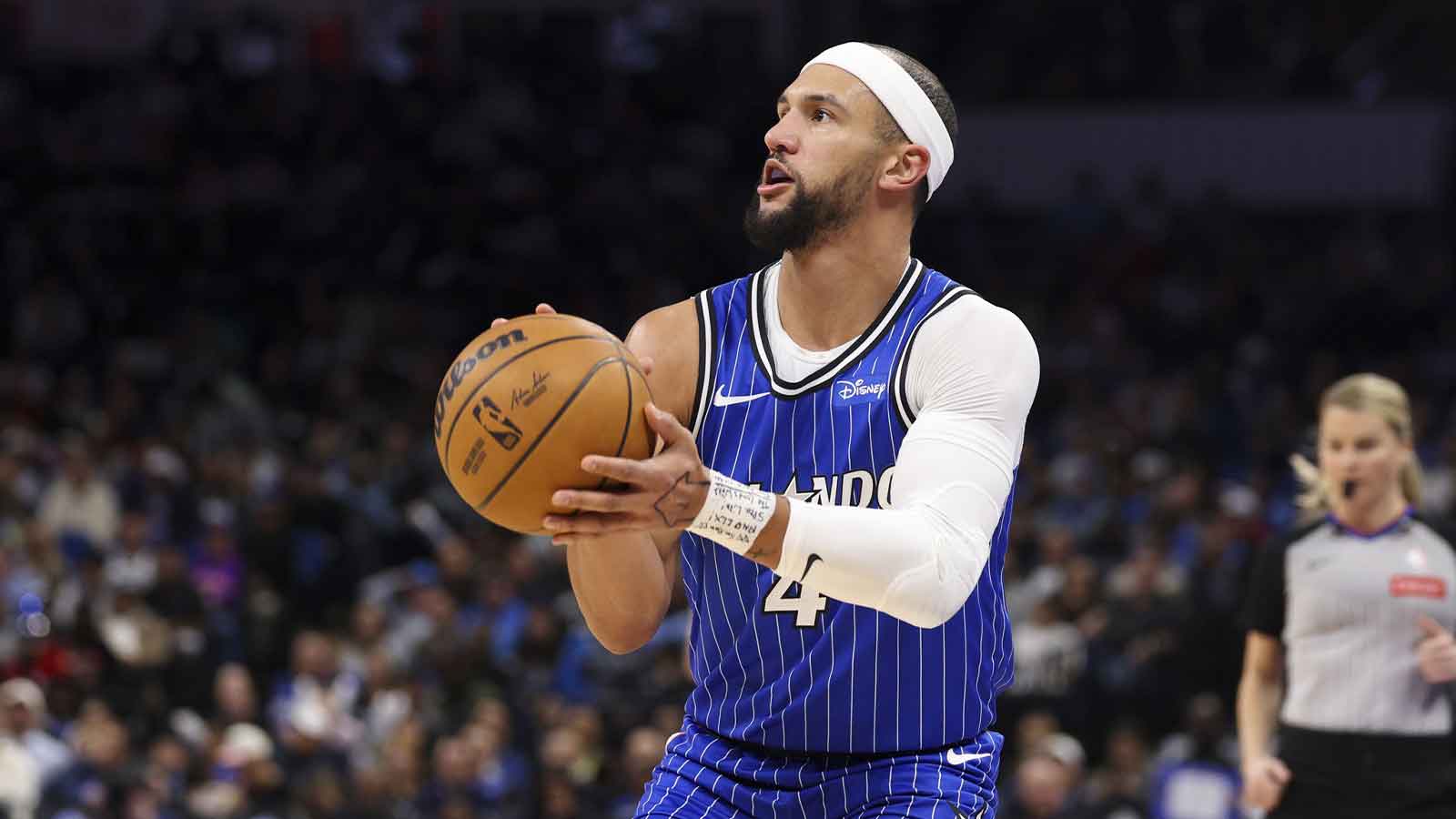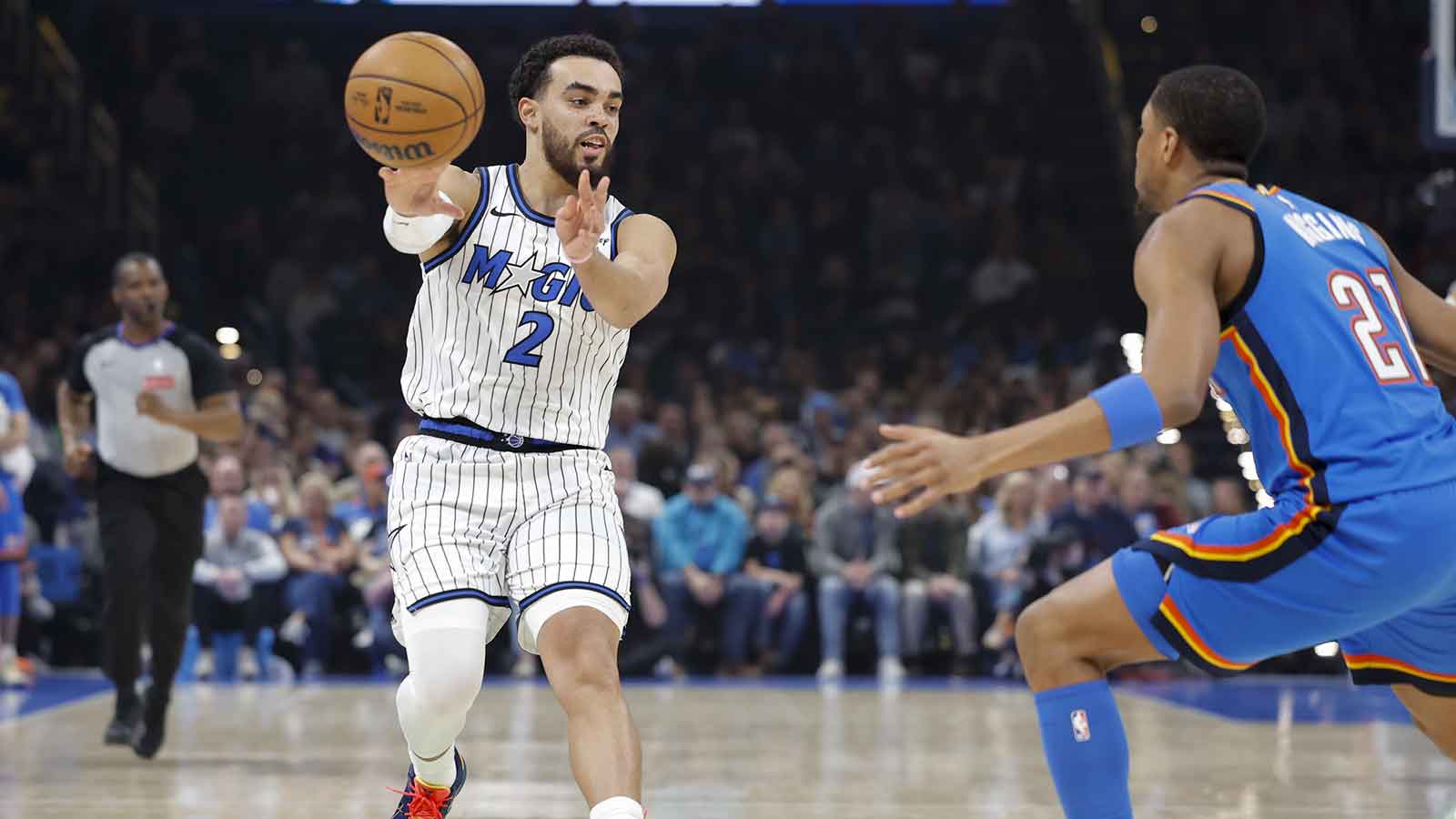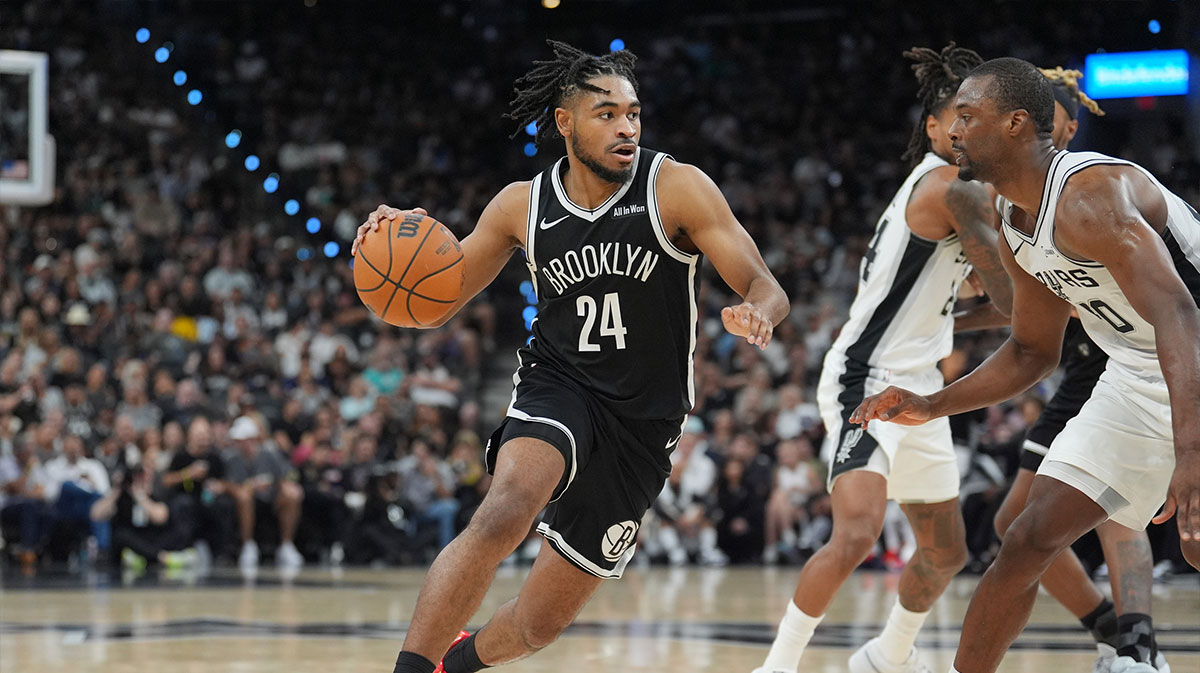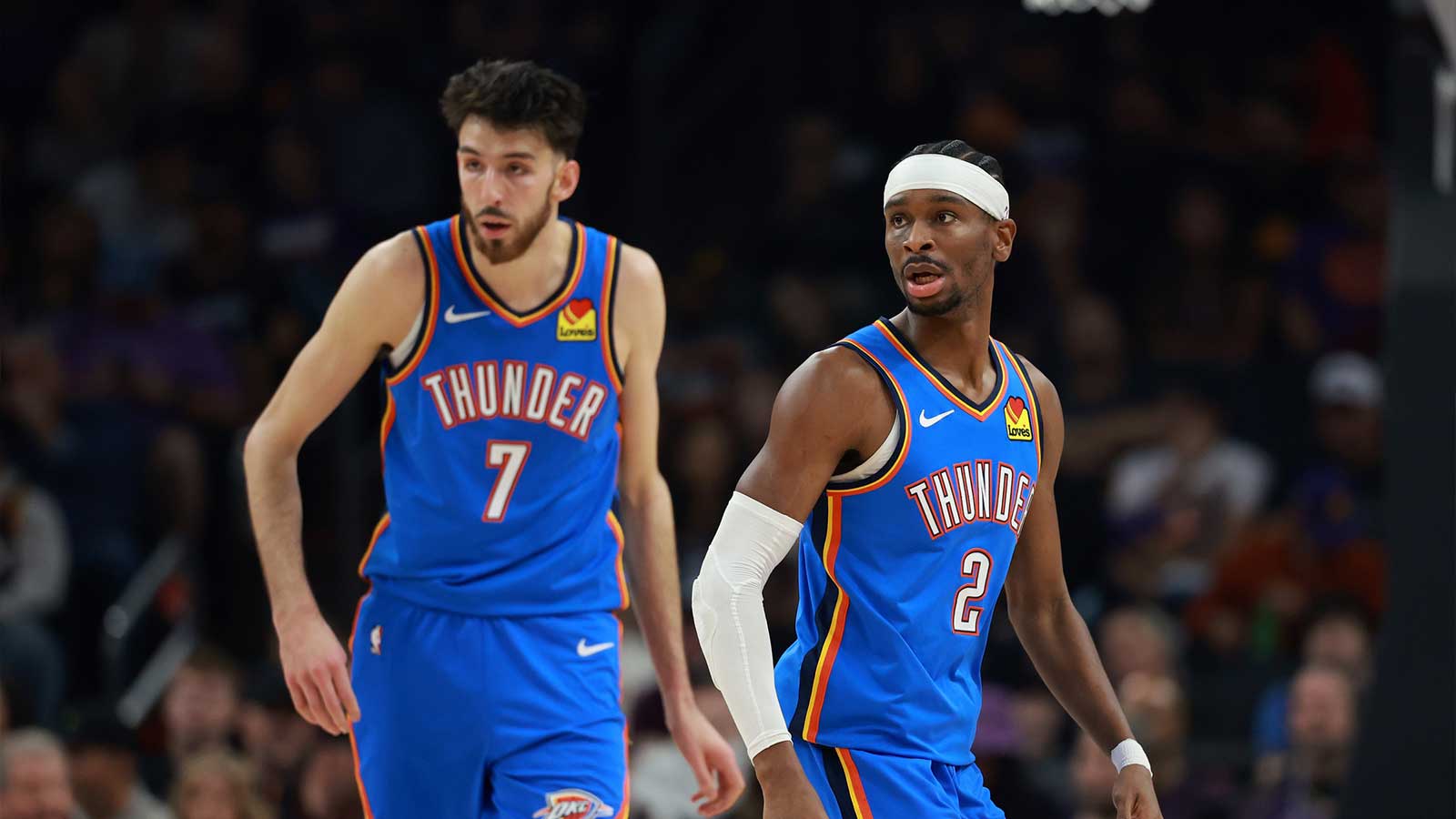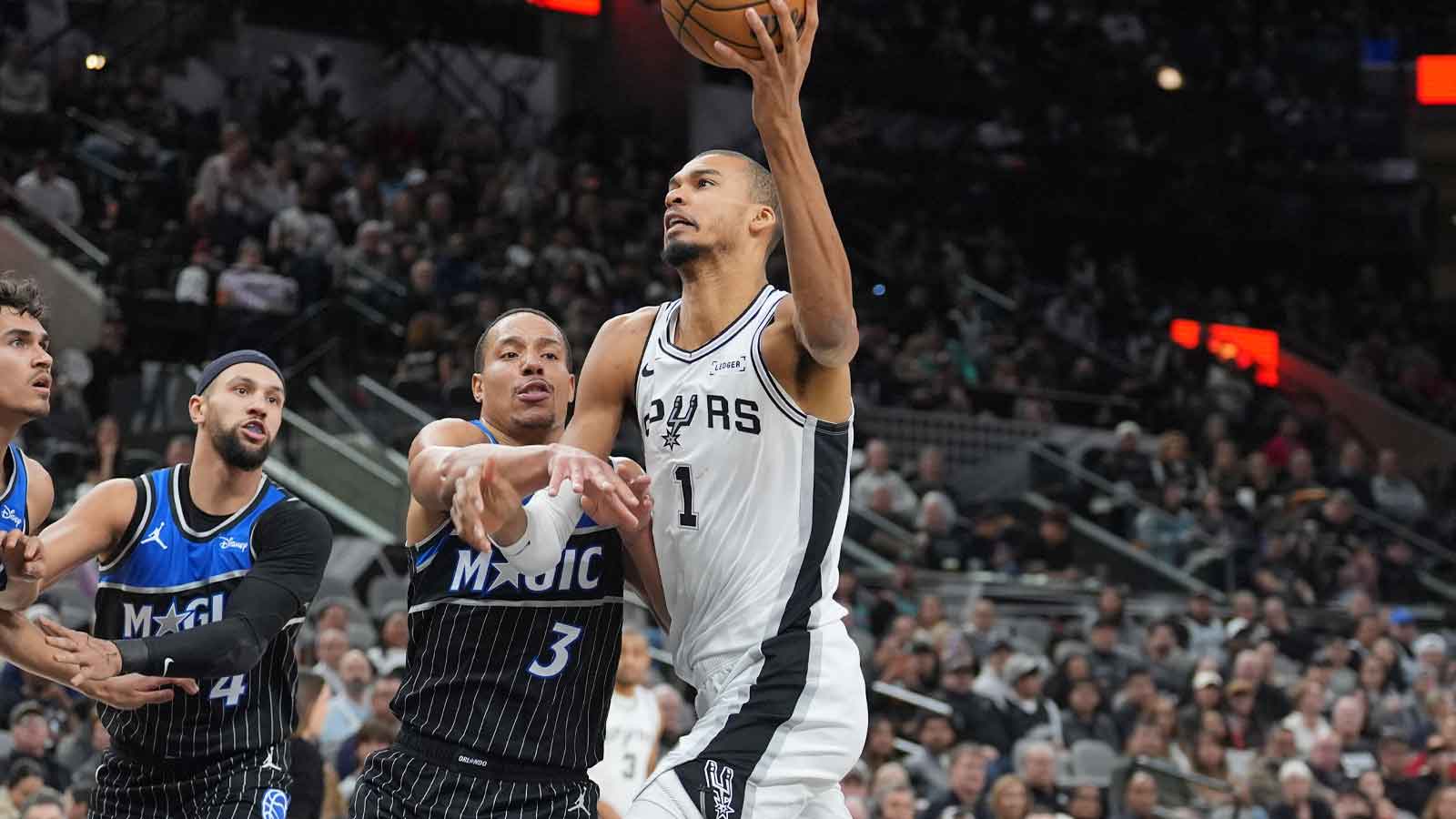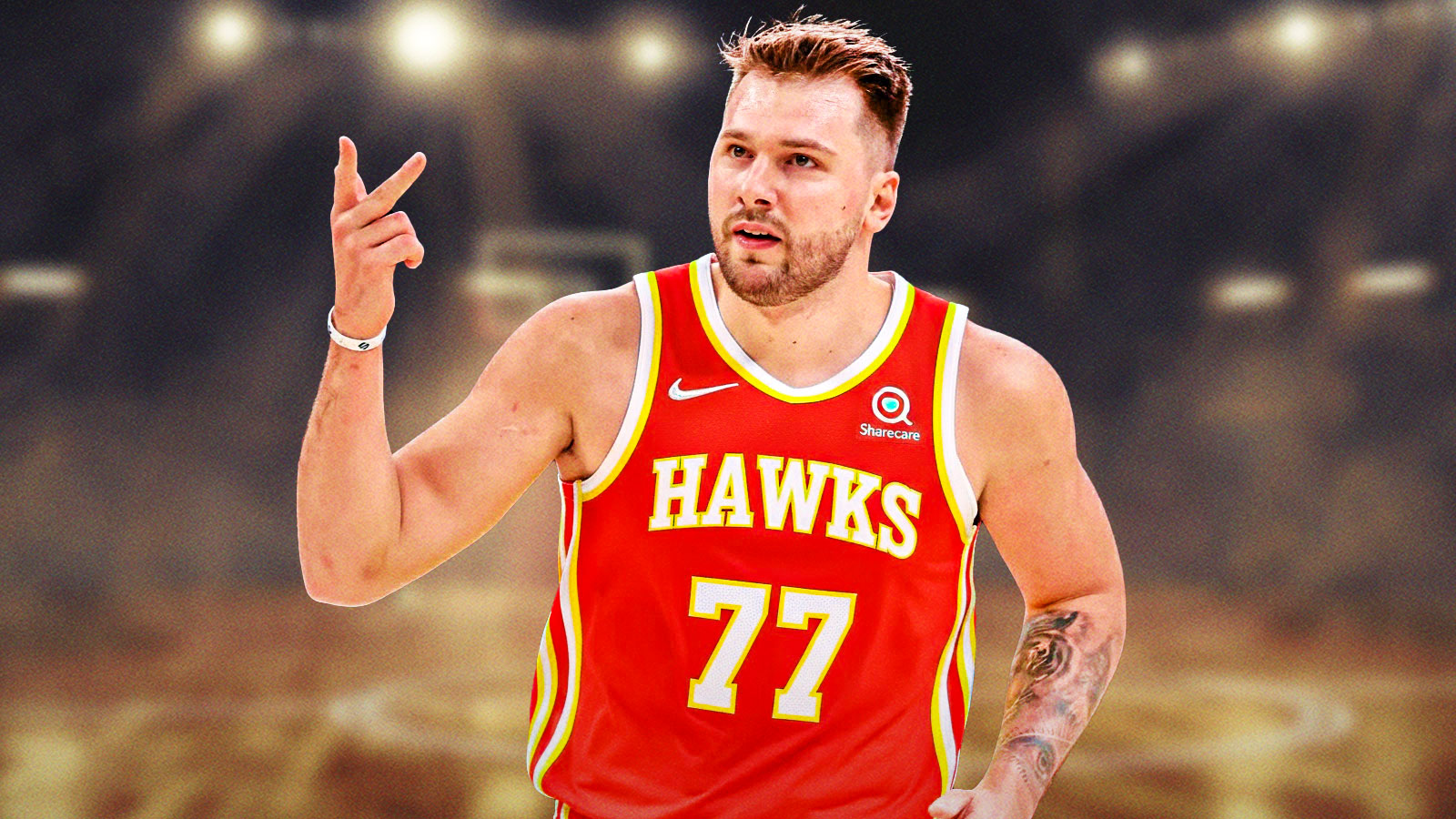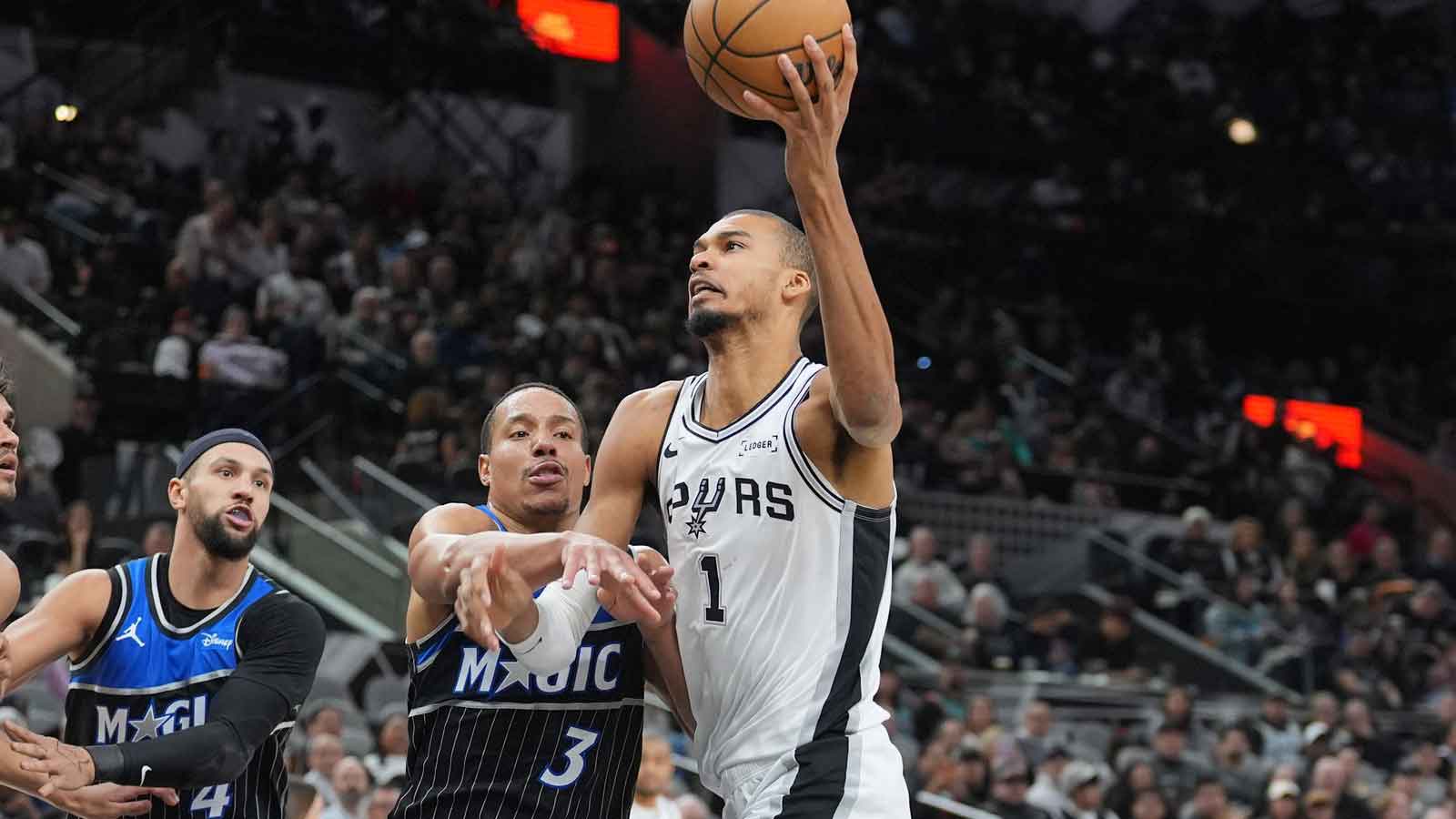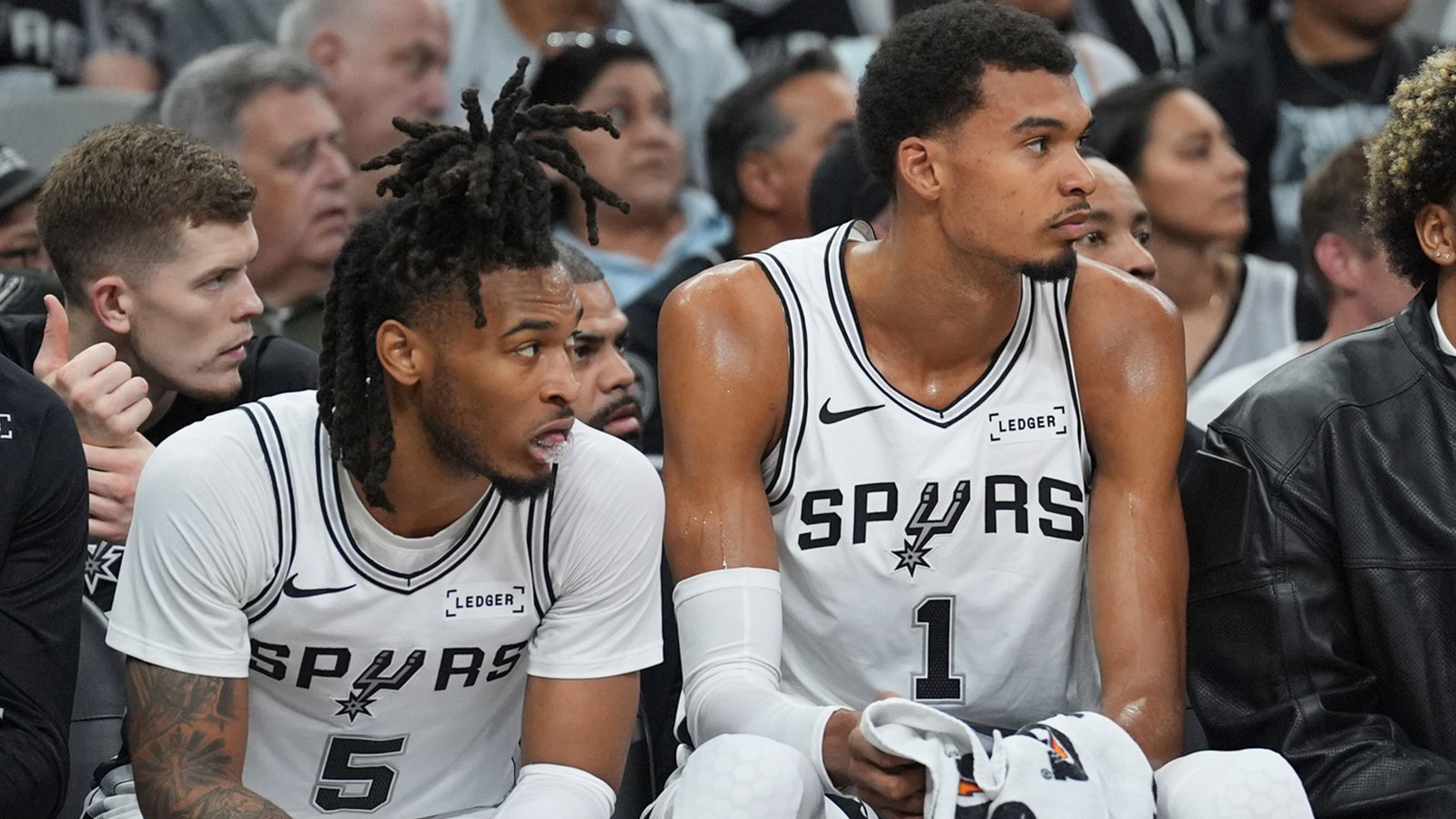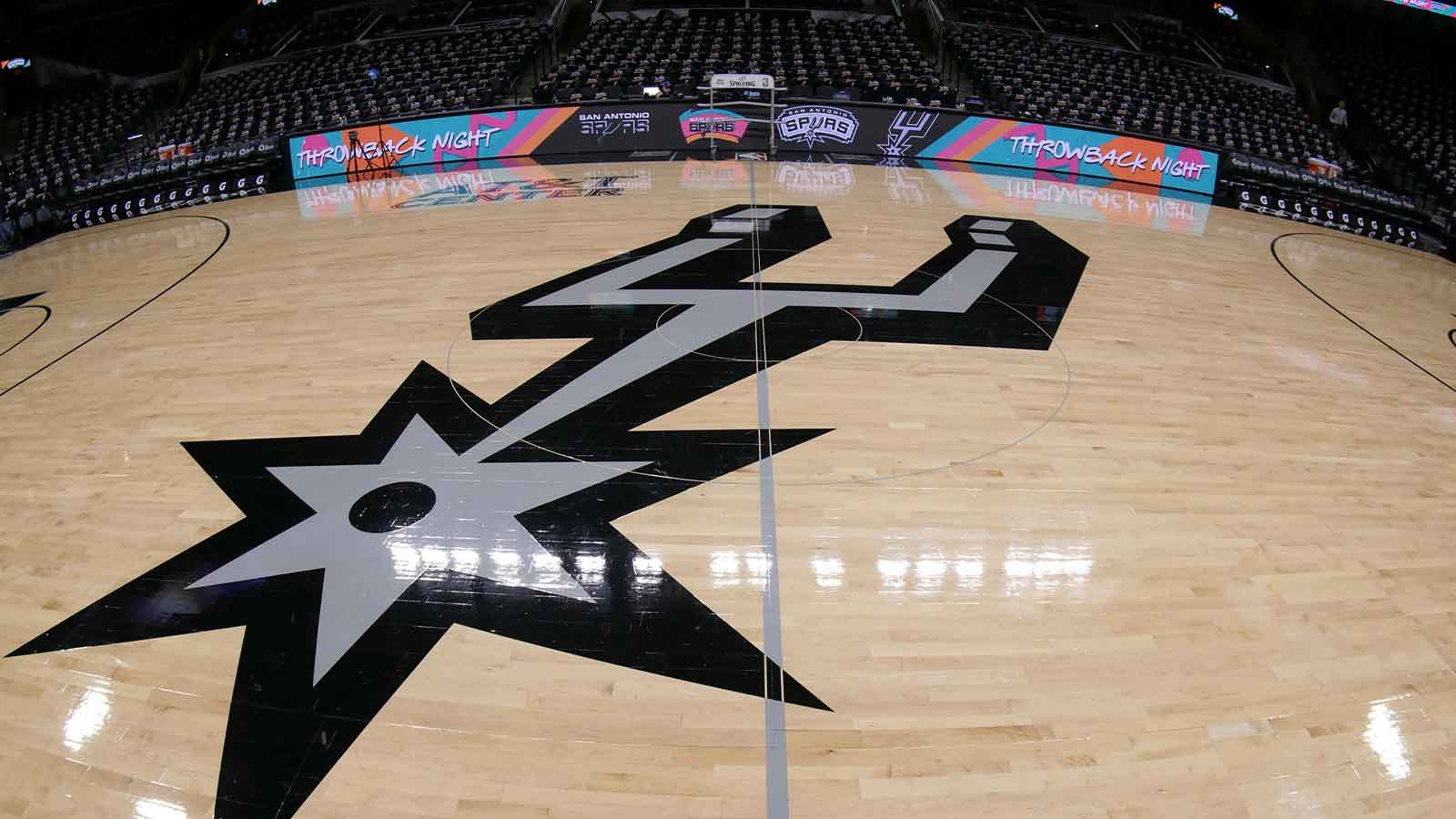The Orlando Magic have not had a ton of success since joining the NBA in 1989. They've had some great teams and two appearance in the NBA Finals is at least a lot more than some teams can boast. However, sustained success and the Larry O'Brien Trophy have eluded them for a long time.
The last decade-plus has been especially rough in Orlando, with just two playoff appearances as a lower seed in the last 11 seasons. The good news is that the Magic do seem to have a very bright future ahead of them with Franz Wagner and 2022-23 Rookie of the Year, Paolo Banchero, leading the way. It's still very early, but if the Magic continue to build this young core, they may finally find the success that they've been searching for.
With a new era of Magic basketball seemingly on the horizon, it seems like a good time to look back at some of the best teams in franchise history. Even though there have been some down years in Orlando, talented players helped form some great teams through the years. With that said, there are a couple teams that genuinely deserve this high praise.
10. 2001-02
Orlando was a pretty regular playoff team in the 1990s and early 2000s, making the postseason in eight out of ten seasons from 1994 to 2003. We'll see some other teams later on, but for now, let's start with the 2001-02 squad.
This team, coached by Doc Rivers, finished fifth in the Eastern Conference with a 44-38 record. The Magic squared off against the Charlotte Hornets in the first-round of the playoffs, a team who finished with an identical record during the regular season. Charlotte was too much for this squad, though, as the Hornets won this series 3-1.
Tracy McGrady was the star of the show in Orlando this season, averaging 25.6 points per game and 30.8 points per game in their four playoff games against the Hornets. Other notable players on this roster included Grant Hill, Mike Miller, Darrell Armstrong and a 39-year-old Patrick Ewing, who was in the final year of his career. Many tend to forget that Ewing ever played for the Magic, as he did so for one year before retiring in 2002.
The Magic finished the regular season ranking seventh in offensive rating and 16th in defensive rating.
9. 1996-97
Another Magic team in this streak of playoff appearances, the 1996-97 squad finished the regular season with a slightly better record at 45-37 overall. Due to the Eastern Conference being better, though, Orlando came in as the 7-seed in the playoffs. The Magic put up a decent fight against the Miami Heat, but fell in a decisive fifth game in their first-round series.
Penny Hardaway was the clear headliner this season, averaging 20.5 points per game. He averaged 30.8 points per game in the playoffs, but the problem was he got no help, as the next closest scorer was Derek Strong at 12.2 points per game. Other notable players on this squad, which went through a mid-season coaching change of Brian Hill to Richie Adubato, include Horace Grant and Nick Anderson. Orlando finished 16th in offensive rating and 14th in defensive rating during the regular season.
8. 1993-94
This team was actually pretty special for the Magic as it marked their first ever playoff appearance in team history. Orlando was awful in its first three seasons, then they were respectable in Year 4 with a .500 record. In their fifth season as a franchise, the Magic made the jump to the playoffs after finishing the regular season with a 50-32 record. For that reason alone, this team deserves a spot on the list.
However, that playoff appearance ended very quickly in a three-game sweep against the Indiana Pacers.
Of course, Shaquille O'Neal was the catalyst behind Orlando's rise, averaging 29.8 points per game in his second season. Hardaway, Anderson and Dennis Scott also averaged double-digit points during this season. The Magic finished third in offensive efficiency, but they were just 15th in defensive efficiency, which held them back from reaching their full potential.
7. 1998-99
Even after trading O'Neal to the Los Angeles Lakers in 1996, the Magic remained decently competitive. One example of this is the 1998-99 squad, which finished third in the East at 33-17 overall in what turned out to be a shortened season due to labor disputes. Orlando had another brief playoff stay, as they lost 3-1 in the first-round against the Philadelphia 76ers.
This Magic squad featured many of the same faces as before: Hardaway, Anderson, Grant, etc. Who is particularly notable is Darrell Armstrong, who won the league's Sixth Man of the Year and Most Improved Player awards after averaging 13.8 points and 6.7 rebounds per game.
This team was almost the opposite of the 1993-94 squad, as they finished 21st in offensive rating and third in defensive rating. Orlando fixed their defensive problems, yet it was now their offense that resulted in their downfall.
6. 2010-11
Jumping ahead a little bit here, we now move on to the 2010-11 squad that finished fourth in the East at 52-30 overall. While they took a step backwards compared to the previous two years, which we'll get to shortly, the Magic were still a very respectable team this season. However, it wasn't enough to save them from a six-game defeat at the hands of the Atlanta Hawks in the first-round.
As he was throughout this stretch, Dwight Howard was the star of the show in Orlando. The then 25-year-old averaged 22.9 points, 14.1 rebounds, 2.4 blocks and 1.4 steals per game en route to winning his third straight Defensive Player of the Year award. Howard is the only player in league history to have won this award in three consecutive seasons.
His supporting cast included the likes of Jason Richardson, Jameer Nelson and 34-year-old Vince Carter, all of whom averaged over 13 points per game during the regular season. The Magic finished the year rankings 14th in offensive rating and third in defensive rating.
5. 2007-08
Now, we can get into the Magic teams that actually did some damage in the playoffs. The 2007-08 squad finished with the same record as the previously-mentioned 2010-11 team at 52-30. However, this team won its first-round series against the Toronto Raptors in five games before falling to the Detroit Pistons in the Eastern Conference Semifinals. This was just the third time in team history that they had won a playoff series.
The 07-08 season marked Howard's first playoff appearance, and he had a very strong regular season, averaging 20.7 points and 14.2 rebounds per game. Hedo Turkoglu and Rashard Lewis provided good scoring as well with 19.5 points per game and 18.2 points per game, respectively, with Turkoglu going on to win the league's Most Improved Player award. Orlando finished ranking seventh in offensive rating and sixth in defensive rating this season.
4. 1995-96
Let's rewind a little bit and go back to the 90s, the first decade of this organization's existence. The Magic were coming off of an NBA Finals appearance in their sixth season ever and while they couldn't quite match that high, Orlando had a good follow-up season all around.
In fact, they finished the regular season with a 60-22 record, which still stands as the most wins in franchise history. In the playoffs, the Magic beat the Pistons in a three-game sweep, followed by a five-game victory over the Hawks in the next round. However, they were no match for the 1995-96 Chicago Bulls in the Eastern Conference Finals, as Michael Jordan and Co. swept them in four games.
O'Neal was dominant in what would be his final season with the Magic, as he ended up averaging 26.6 points and 11.0 rebounds per game. Hardaway was right there with him at 21.7 points per game, while Scott, Anderson and Grant all averaged double digit scoring numbers as well. Orlando ranked third in offensive rating and 12th in defensive rating this season.
3. 2009-10
We jumped ahead, then we jumped back, and now we are jumping ahead again!
Like the 1995-96 Magic, this 2009-10 team was also coming off an appearance in the NBA Finals. While they finished just shy of the franchise regular-season win record at 59-23 overall, this team made up for it in the playoffs.
Orlando, the 2-seed in the East, steamrolled through the first two rounds by sweeping both the Pistons and the Hawks. The Magic ultimately met their match against the Boston Celtics in the Eastern Conference Finals, falling in six games. They tried to claw back after going down 3-0, but this was too steep of a hill to try and climb up.
Still, this team is easily one of the best in Orlando's history. Howard was the star, as usual, averaging 18.3 points and 13.2 rebounds per game. Carter, Lewis and Nelson all averaged double-digit points as well and during the regular season, the Magic finished fourth in offensive rating and third in defensive rating.
If they could have taken just one of those first three games against Boston, Orlando could have had the chance to compete for a title.
2. 2008-09
Only two teams in this franchise's history have made it all the way to the NBA Finals and one of those teams was the 2009-09 Magic. We're really splitting hairs at this point, and this squad could've easily been No. 1 on this list. Ultimately, we have them just behind their earlier counterparts, who we will discuss very shortly.
This 08-09 team finished with a 59-23 record, the same record the 2009-10 team record as the 2009-10 team, which we already discussed earlier. The Magic fought tooth and nail throughout the Eastern Conference playoffs in 2009, defeating the 76ers in six games, followed by the Celtics in seven games. They then went on to defeat the LeBron James and the Cleveland Cavaliers in six games to face off against the Lakers in the NBA Finals.
With the Lakers taking the first two games of this series on their home floor, Orlando fought back and defended their home floor in Game 3. Unfortunately, Kobe Bryant went for 32 points in Los Angeles' Game 4 victory and he was able to lead the Lakers to a victory in front of their home faithful in Game 5. This is how Orlando's “magical” run to the Finals ended.
Howard was once again the man in charge of this team, averaging 20.6 points and 13.8 rebounds per game. Lewis, Turkoglu, and Nelson all averaged over 16 points per game, with Rafer Alston contributing after being traded to the team mid-season. Orlando finished 11th in offensive rating and surprisingly, they were first in defensive rating this season.
1. 1994-95
Now we've reached the apex of Orlando Magic basketball. The 1994-95 team finished first in the East at 57-25 overall. What's very impressive about their 57-25 record is that this was just Orlando's sixth season in existence.
In the playoffs, they beat the Celtics in four games, followed by the Bulls in six games. The Magic then went on to defeat the Indiana Pacers in seven games, reaching the NBA Finals as a fairly new franchise. This inexperience finally showed in the championship series, as Hakeem Olajuwon and the Houston Rockets repeated as NBA champions with a four-game sweep.
O'Neal had arguably his most dominant season in Orlando, averaging 29.3 points and 11.4 rebounds per game. The usual supporting cast of Hardaway, Anderson, Scott and Grant all provided excellent scoring with double-digit scoring averages each. Orlando finished first in the league in offensive rating and 11th in defensive rating this season.
Again, it's really tough to decide which team is better between the two teams who made the NBA Finals. The 2008-09 squad has a strong argument for the top spot with a better regular season and winning a game in the NBA Finals, but the sheer dominance of O'Neal is enough for us to give the 1994-95 team the slightest of edges.

